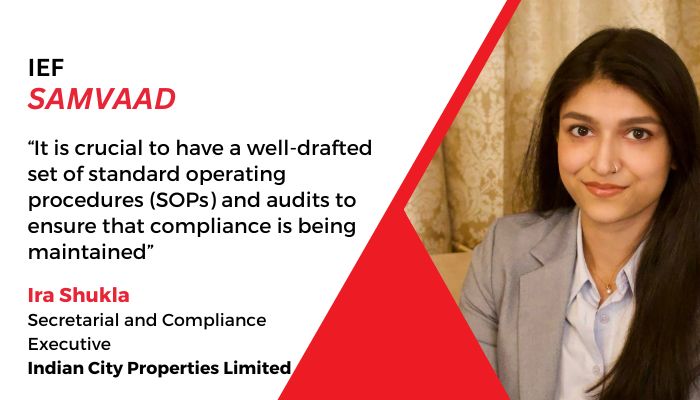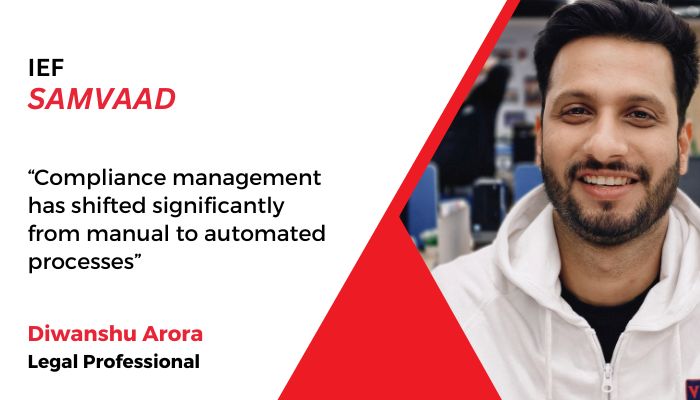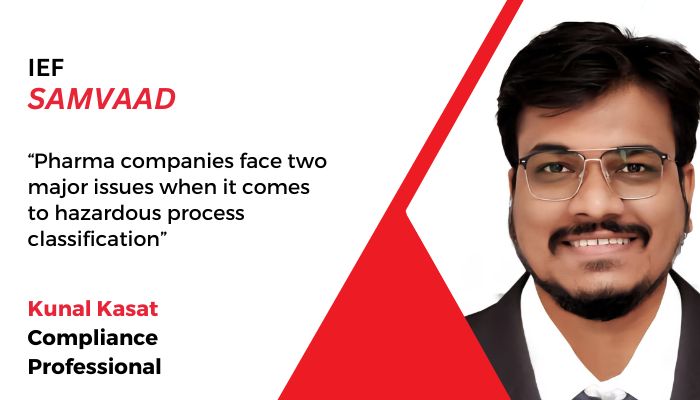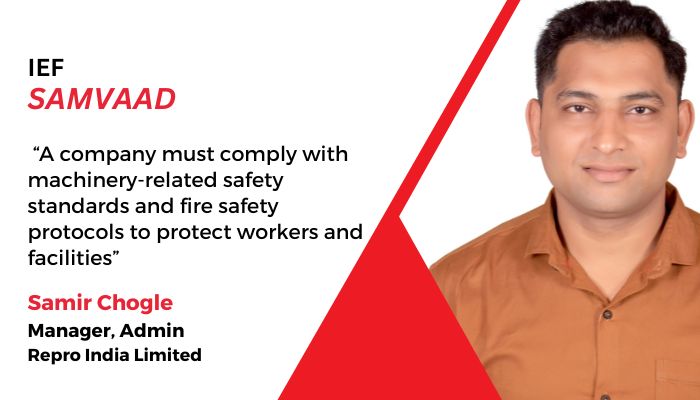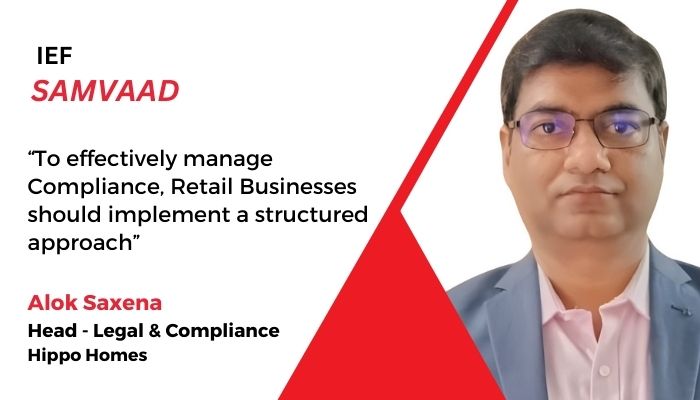Ms. Ira Shukla, Secretarial and Compliance Executive, Indian City Properties Limited, speaks to the India Employer Forum about the Real Estate Compliance in India, the Challenges, protocols and more…
What are the key regulatory challenges faced by real estate developers in India?
The main challenge that the real estate sector in India faces is that there are many laws governing the sector. For instance, there is RERA, the Registration Act, the Demolition Act, Land Acquisition Act, various environmental regulations, health and safety laws etc. The first problem is identifying which laws are applicable to a particular project. Once identified, the next challenge is understanding to what extent each law is applicable to the specific circumstances of the project. Ensuring all compliances becomes a tough task.
Further, real estate in India is still in the unorganized sector. At present, there is no consolidated portal or centralized database that holds all this regulatory information. One is required, therefore, to physically visit multiple departments, identify the required documents and procedures, and have discussions with various officials, which is time-consuming and inefficient. The lack of streamlined access to this information makes regulatory compliance an ongoing challenge for developers in the country.
What do you think contributes to the complexity that compliance officers or company secretaries face on a day-to-day basis, especially when dealing with regulations like the Land Acquisition Act and environmental laws?
Keeping up with laws like the Land Acquisition Act and environmental regulations and their implementation requires a lot of time, effort, and energy. To add to this, not many experts with in-depth knowledge of real estate laws and regulations are available. This gap makes the day-to-day functioning even more difficult. To ensure effective implementation, it is essential to have a dedicated team of lawyers to understand the law and apprise the Compliance Officer about its implications. The Compliance Officer will then be required to coordinate with officials like on-site project managers and safety managers, who also play an important role here.
Additionally, it is very important to train and educate the onsite workers and staff so that they not only understand the regulations, but also how these affect their day-to-day functioning. It is also crucial to have a well-drafted set of standard operating procedures (SOPs) and audits to ensure that compliance is being maintained. All of this comes at a cost. However, it’s important to remember that while there is a cost of compliance, the cost of non-compliance can be far more significant.
How far do you think the real estate sector has come in terms of having skilled professionals to manage compliance, with proper structures in place rather than relying on just one lawyer to handle everything from title and allocation to land disputes?
The top management sets the tone for the entire organization. In my experience, the top management and promoters play a crucial role in the appointment of skilled professionals for handling compliances. The presence of such officials promotes a culture of compliance, and employees are motivated to comply with the rules and regulations. Proactiveness on the part of the Government has resulted in more stringent laws and imposition of hefty penalties and fines. This also has a role to play as far as the shift from relying on just one lawyer to having a team of skilled professionals for handling all compliances is concerned. This is a positive development towards more disciplined compliance practices.
What are some of the key protocols that should be in place to manage construction, site, safety, and hazardous material handling?
The first and most critical protocol is to have a solid Standard Operating Procedure (SOP) for health and safety, which should detail every process and be regularly updated to keep pace with changing regulations. Ensuring the quality of all the construction materials and safety equipment on-site is also essential, as compromising on quality, even to save costs in the short term, poses long-term risks. Workers should be provided with adequate safety equipment and medical assistance should be available on the site. First-aid kits and fully-equipped ambulances must be made available depending on the size of the project. Also, it is very important to have a dedicated safety officer on-site at all times to ensure compliance with safety protocols, along with a security officer for overall site safety.
Additionally, on-site training of workers is one of the most important aspects. They should be aware of why these protocols are crucial for their own health and well-being, and not just out of fear of penalties. Regular safety drills, training sessions, and opportunities to address any concerns or queries will further reinforce the importance of safety, leading to better compliance and a safer work environment.
How do real estate firms assess compliance risks? And what are the most significant legal, financial, and reputational risks of non-compliance?
Real estate firms identify compliance risks by categorizing them into high, moderate, and low, depending on factors like the monetary value involved and the criminal liability associated with non-compliance. In terms of legal risks, if there’s a violation of laws, it can cause project delays, permits may be revoked, or projects may be suspended until further legal orders are issued. There is also the risk of lawsuits from customers or investors. Additionally, title disputes are a common issue, especially as unclear paperwork or documentation is likely to result in challenges over property ownership, creating unnecessary legal and financial burdens for all stakeholders.
Regarding financial risks, non-compliance can lead to cost overruns, particularly because of delays in the completion and handover of projects. At times, there is a possibility of the project becoming unviable, forcing it to shut down entirely. Non-compliance can also trickle down by way of investors pulling out their investments or choosing not to fund future projects. This loss of funding, along with the penalties and fines imposed, adds to the financial burden.
There may also be repercussions like loss of trust and clientele, damage to brand value, and other reputational risks.
What are the best practices that the real estate sector follows for managing compliance, and how can technology be leveraged to improve the process?
One of the best approaches is to have a solid team of legal experts having a deep understanding of real estate laws, sound drafting skills, and practical experience in the field. It is essential to have a team of people who are capable of navigating the complexities of regulations and addressing the day-to-day challenges. Additionally, establishing standard operating procedures (SOPs) ensures that everyone is on the same page regarding applicable laws. People without a legal background tend to have a lot of hesitation when it comes to legal documentation. Having an explanatory note can go a long way in helping them understand the law and its applicability.
Technology plays a crucial role in streamlining compliance efforts. A centralized database that stores all compliance-related documents in one place enables easier access, archival, and tracking. Automation tools, increasingly popular in the market, help fix accountability and responsibility on each department. These tools are very effective in dividing the burden of compliance between different individuals by clearly delineating who is responsible for each task, thus minimizing the risk of non-compliance. The integration of AI can further strengthen compliance management. AI-powered tools can assist in document authentication by verifying the legitimacy of uploaded records, such as using barcode scanning or text recognition. This not only reduces the time spent on manual checks but also increases the reliability of compliance data. While gaps in technology still exist, the continuous advancements in automation and AI are helping to bridge these gaps.
About Ira Shukla
Ms. Ira Shukla is a dedicated professional in the field of secretarial and compliance, with over a year of experience in corporate governance, statutory compliance, and regulatory filings. She plays an active role in supporting board and committee operations, maintaining statutory records, and ensuring timely and accurate compliance with all applicable laws.
With a keen eye for detail and a structured approach, Ira contributes effectively to upholding legal and procedural standards within the organisation. She approaches her work with professionalism, reliability, and a strong commitment to continuous improvement.
Disclaimer: The opinions and views expressed in this article, including any accompanying data, are the sole responsibility of the author and should not be construed as reflecting the official policy or position of India Employer Forum.

